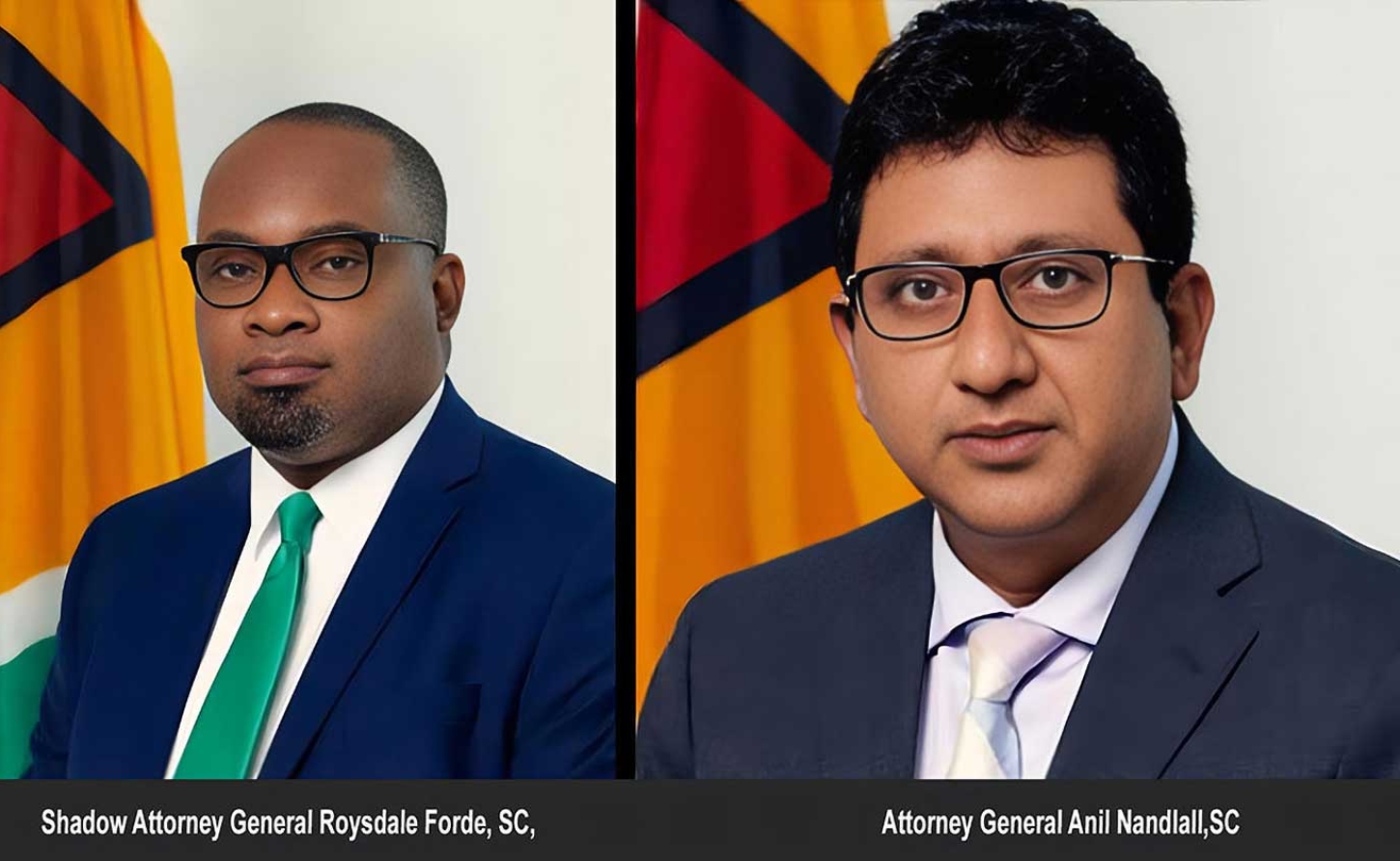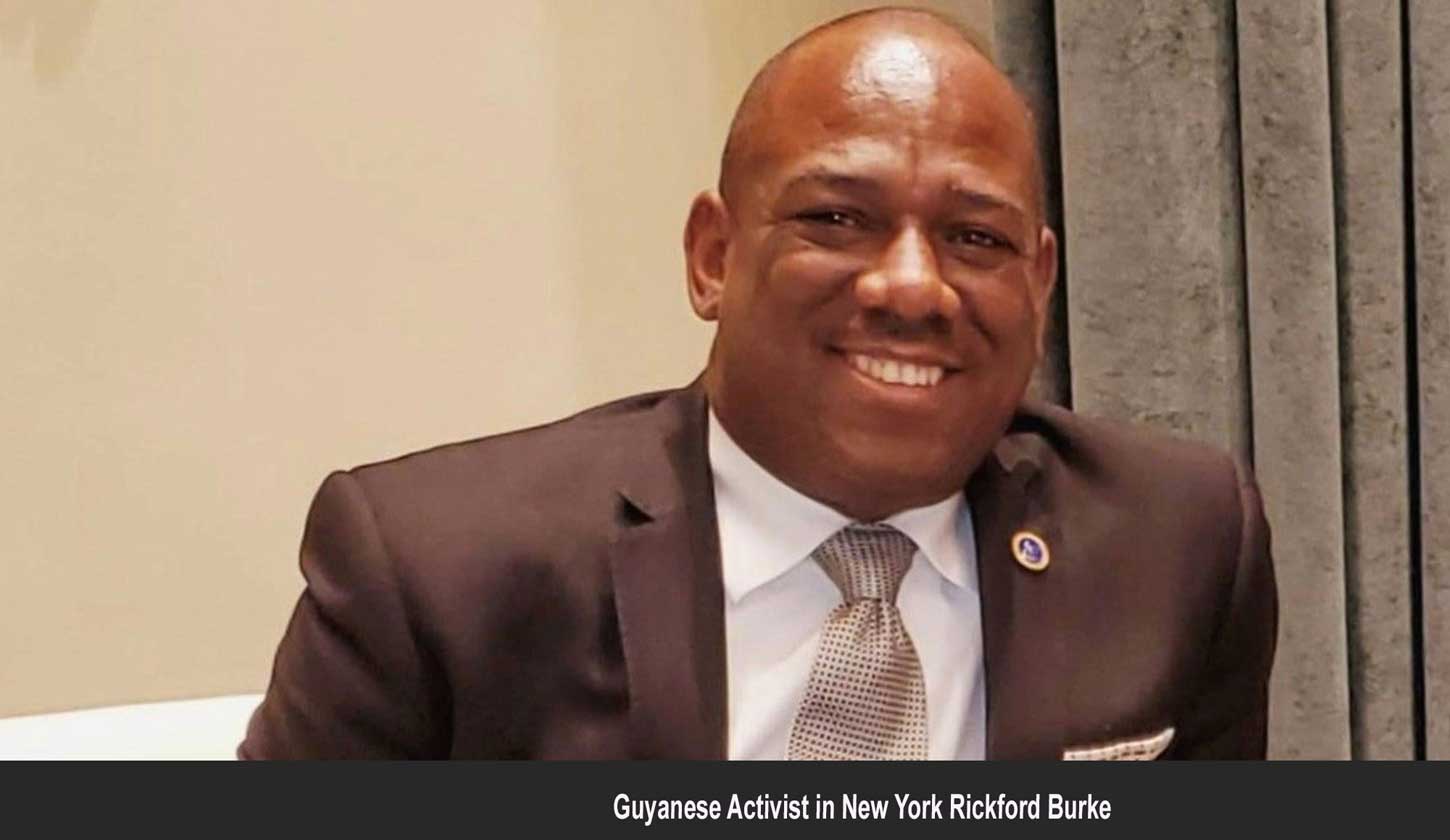GUYANA | High Court Delivers Crushing Blow to Guyana's Criminal Defamation Laws

In a scathing judgment that exposes the lengths to which Guyana's government will go to silence overseas critics, the High Court has declared criminal defamation laws unconstitutional and ordered the state to pay $500,000 in costs after a Guyanese police officer traveled to Brooklyn to serve summons on a political activist who has been living in the United States for 27 years.
The case against Attorney General Anil Nandlall represents a devastating legal defeat for the Guyana government and a landmark victory for press freedom in the Caribbean, masterfully orchestrated by Senior Counsel Roysdale Forde, who marshalled a brilliant constitutional challenge that would ultimately dismantle the government's favorite weapon against critics.
The controversy centers around Rickford Burke, a vocal critic of the People's Progressive Party/Civic (PPP/C) government who faces accusations related to conspiracy to publish defamatory libel with intent to extort money from businessman Afras Mohammed.
What began as a routine criminal charge quickly transformed into a constitutional crisis when authorities dispatched Assistant Superintendent Rodwell Sarabo on what the court termed "a frolic" to New York at taxpayers' expense.
The officer's mission: to serve legal documents on Burke at his Brooklyn residence, despite the defendant's decades-long absence from Guyana.
The Legal Architect Behind the Victory
Senior Counsel Roysdale Forde transformed what could have been a simple jurisdictional dispute into a sweeping constitutional challenge that would rewrite the landscape of press freedom in Guyana.
Through his Fixed Date Application, Forde methodically constructed a multi-pronged attack that exposed not merely the government's procedural missteps, but the fundamental unconstitutionality of the entire criminal defamation framework.
Forde's legal strategy was nothing short of masterful. Rather than simply challenging the overseas service of summons, he crafted fourteen distinct declarations that systematically dismantled every aspect of the government's case.
His application demanded declarations ranging from the basic jurisdictional issues—that Guyana police have no authority to serve summons abroad—to the profound constitutional questions about whether criminal defamation can exist in a modern democracy.
The Senior Counsel's approach demonstrated the kind of strategic thinking that separates competent lawyers from constitutional crusaders. By seeking declarations that the offences were "Common Law criminal misdemeanor offences" rather than summary jurisdiction matters, Forde immediately exposed the procedural house of cards upon which the government's case was built.
His insight that magistrates' jurisdiction under Section 68(1) of the Summary Jurisdiction Magistrates Act is restricted to Guyana's geographical limits provided the foundation for unraveling the entire prosecution.
A Journey into Legal Absurdity
The court's findings paint a picture of prosecutorial overreach that borders on the farcical. Burke, who has been living in the United States for twenty-seven years, was charged with offenses allegedly committed at Lusignan, East Coast Demerara—a geographical impossibility that prosecutors apparently failed to disclose to the magistrate who issued the summons.
The evidence reveals a troubling pattern of prosecutorial misconduct. When ASB Sarabo first attempted to locate Burke at his last known Guyanese address in Fellowship, West Coast Demerara, relatives informed him that Burke had been living in the United States for decades. Rather than acknowledging the jurisdictional limitations, authorities doubled down on their pursuit.
In what the court described as an unprecedented breach of legal protocol, Sarabo traveled to Brooklyn in December 2023, accompanied by a process server identified as "Wiseman."
The attempted service at Burke's Maple Street address was rejected by the defendant, with the documents ultimately being left on his doorstep—a method the court noted "may not be acceptable in relation to criminal proceedings."
Constitutional Earthquake

Beyond the jurisdictional circus, Senior Counsel Forde delivered the knockout blow through his constitutional arguments that would reshape Caribbean jurisprudence.
The High Court's declaration that criminal defamation laws under Articles 107-114 of the Criminal Law (Offences) Act violate Article 146 of Guyana's Constitution was the direct result of Forde's sophisticated legal reasoning that criminal defamation represents an "unjustified and unrequired restriction of the Freedom of Expression which is the cornerstone of the principles of democracy, rule of law, accountability, transparency and good governance."
Forde's constitutional challenge was particularly shrewd in its recognition that modern democracies have been systematically abandoning these colonial-era restrictions.
His arguments positioned Guyana's retention of criminal defamation laws not as a matter of legal tradition, but as an anachronistic barrier to democratic discourse that placed the nation embarrassingly out of step with international human rights standards.
The ruling places Guyana's government in the embarrassing position of being among the last Caribbean holdouts clinging to colonial-era laws that neighboring nations have abandoned. Jamaica became the first independent Caribbean country to completely abolish criminal defamation laws in 2013, while Grenada repealed criminal libel provisions in 2012 and Trinidad and Tobago partially decriminalized defamation.
The court's reasoning was unambiguous: "The resort to criminal defamatory libel to protect individual reputation is unnecessary, disproportionately excessive and not justified and or required to protect reputations, rights and freedoms of other persons and are unconstitutional as being in violation of Article 146."
Vague Charges, Clearer Intent
Senior Counsel Forde's constitutional challenge exposed another glaring weakness in the prosecution's case: the charges themselves were so vague as to be meaningless. Forde's insistence that the charges failed to specify what allegedly defamatory statements Burke was accused of making against businessman Mohammed proved prophetic when the court noted, "It is not enough on a criminal charge to simply say they have been libel. An accused must know precisely what are the words allegedly used by him or her to found the charge."
This aspect of Forde's challenge revealed a deeper understanding of how vague criminal defamation laws function as instruments of intimidation rather than justice. By forcing the court to confront the fundamental question of what exactly Burke was alleged to have said, Forde exposed the prosecution's inability to articulate specific, actionable claims—a weakness that undermines the entire criminal defamation framework.
This vagueness appears to be a feature, not a bug, of how criminal defamation laws have been wielded in Guyana. Attorney General Nandlall has made clear his intention to pursue overseas-based critics, recently stating that "persons believe that they have the license to say what they want, to libel persons, to publish incitements" on social media platforms.
A Pattern of Intimidation
The Burke case fits into a broader pattern of the Guyana government's increasingly aggressive stance toward critics. The government has lodged formal complaints with U.S. law enforcement agencies about Burke and retained American law firms to pursue legal action against him.
Burke himself has filed a $500 million defamation lawsuit against Minister Gail Teixeira and state media outlets, creating a web of cross-border legal warfare.
The government's pursuit of Burke has taken on an almost obsessive quality. Burke has alleged that Nandlall is under police investigation in New York in connection with an alleged conversation about having Burke "eliminated and killed"—claims that add a sinister undertone to what might otherwise be dismissed as legal theater.
Regional Rebellion Against Colonial Relics
The High Court's decision represents more than a legal setback for the Guyana government; it's a recognition that the Caribbean is finally shedding the colonial-era legal structures that have long stifled press freedom. International Press Institute research confirms that 13 out of 15 Caribbean states maintain criminal libel laws, with most also maintaining seditious libel provisions.
The timing is particularly significant given recent calls by Guyana's opposition Alliance for Change to repeal blasphemous libel laws, calling them "archaic and incompatible" with constitutional rights. The opposition noted that several Commonwealth countries including the United Kingdom, Canada, and Ireland have already scrapped blasphemy laws.
The Price of Overreach
Perhaps most stinging for the government is the court's $500,000 costs order—a substantial sum that reflects the court's disapproval of the state's conduct. The judge's language was particularly harsh regarding the decision to send a police officer overseas, describing it as conduct that "cannot be countenanced" and questioning whether proper legal advice was even sought from the Director of Public Prosecutions.
The court's criticism extends beyond the jurisdictional issues to the fundamental question of resource allocation: "The court frowns on the course of action taken by the prosecution and the Guyana Police Force to in effect send an officer on a frolic on what must have been a taxpayer's expense."
A Watershed Moment
This judgment represents a watershed moment for press freedom in Guyana and the broader Caribbean, achieved through Senior Counsel Roysdale Forde's masterful legal strategy that transformed a single case into a constitutional landmark.
By declaring criminal defamation laws unconstitutional, the High Court has effectively dismantled one of the government's primary weapons against critics and journalists—a victory that owes its success to Forde's comprehensive understanding of both jurisdictional limitations and fundamental constitutional principles.
Forde's approach in seeking multiple declaratory orders rather than simply challenging the specific summons demonstrates the kind of strategic legal thinking that creates lasting precedent. His fourteen-point application covered every conceivable angle, from the basic question of police authority to serve documents overseas to the profound constitutional issues surrounding freedom of expression in democratic societies.
The court's reasoning was particularly pointed in noting that civil remedies remain available for those who feel aggrieved by allegedly defamatory statements: "If someone feels aggrieved by what has been said about them, they may file a civil suit. It should not be for the State, through any law enforcement arm, to charge persons for criminal defamation."
Looking Forward
Attorney General Nandlall has vowed that if courts rule existing laws cannot be used to serve documents on overseas defendants, the government would "amend the law to give the court jurisdiction to bring before the court persons who have committed offences against the laws of this country".
Such threats ring hollow in the face of a constitutional declaration that the underlying criminal defamation framework is fundamentally unconstitutional.
The Burke case exposes the dangerous intersection of authoritarian impulses and outdated colonial laws. In an era where surveys show that more than half of Caribbean respondents believe top government officials engage in authoritarian behavior, this judgment serves as a crucial reminder that constitutional protections for free expression cannot be circumvented by creative interpretations of archaic statutes.
For Guyana's government, the message is clear: the days of using criminal defamation laws to silence critics are over. For press freedom advocates across the Caribbean, the decision provides powerful precedent that colonial-era restrictions on free speech have no place in modern democratic societies.
The ultimate irony is that the government's overreach in the Burke case may have achieved exactly what it sought to prevent: shining an international spotlight on Guyana's authoritarian tendencies while simultaneously dismantling the legal framework that enabled such conduct. In attempting to silence one critic, the government may have freed countless others from the threat of criminal prosecution for their words.
As neighboring Caribbean nations continue their march away from criminal defamation laws, Guyana now faces a choice: embrace this constitutional clarification and join the regional movement toward press freedom, or persist in authoritarian impulses that have been decisively rejected by its own High Court. The $500,000 price tag suggests the cost of choosing poorly will only continue to mount.
-30-
